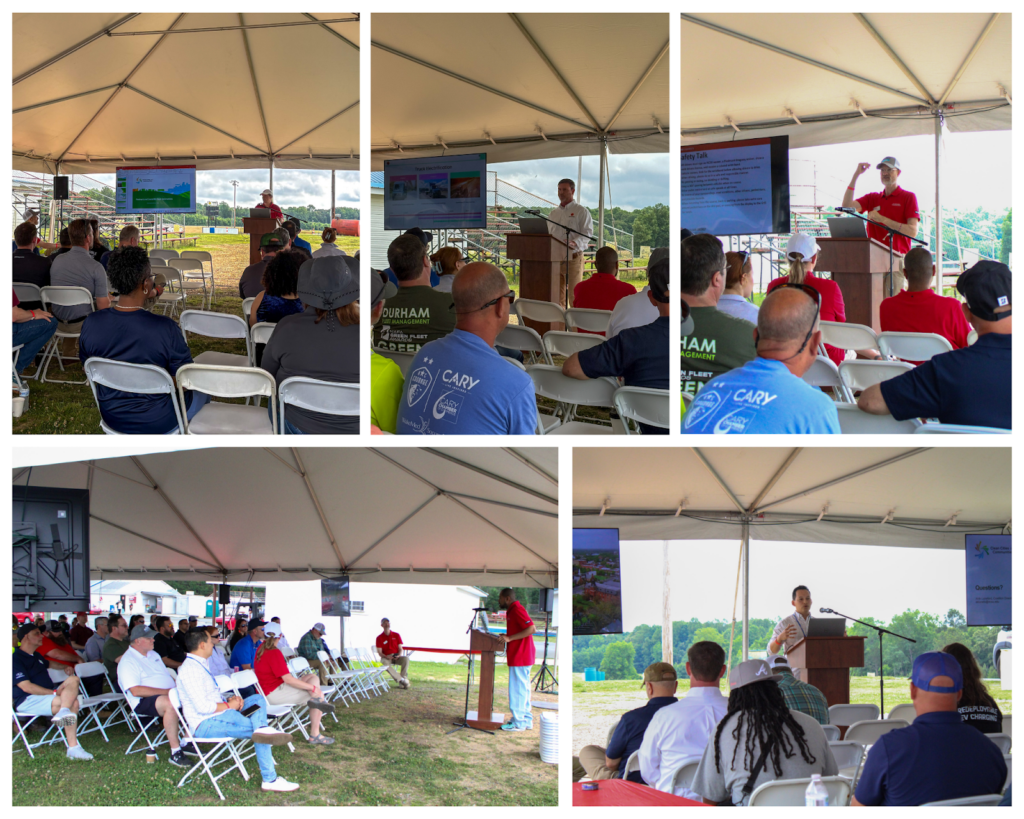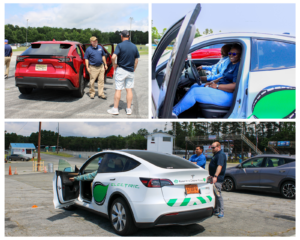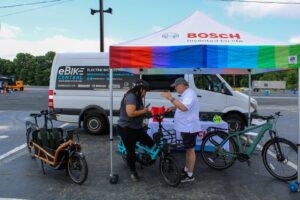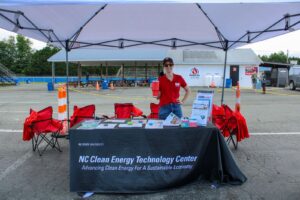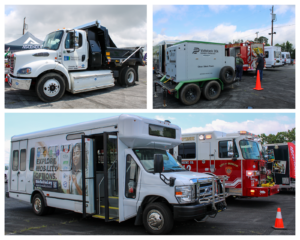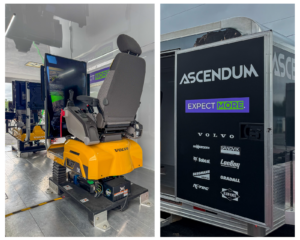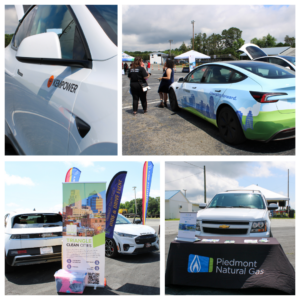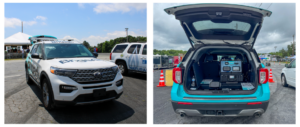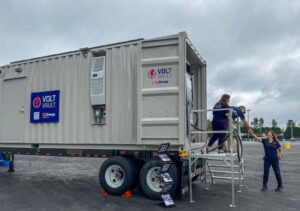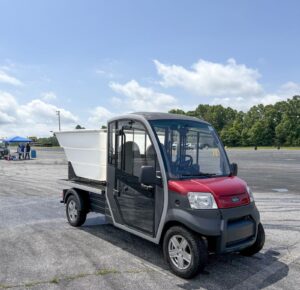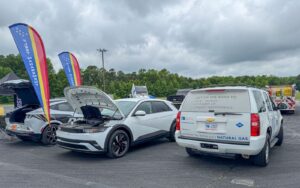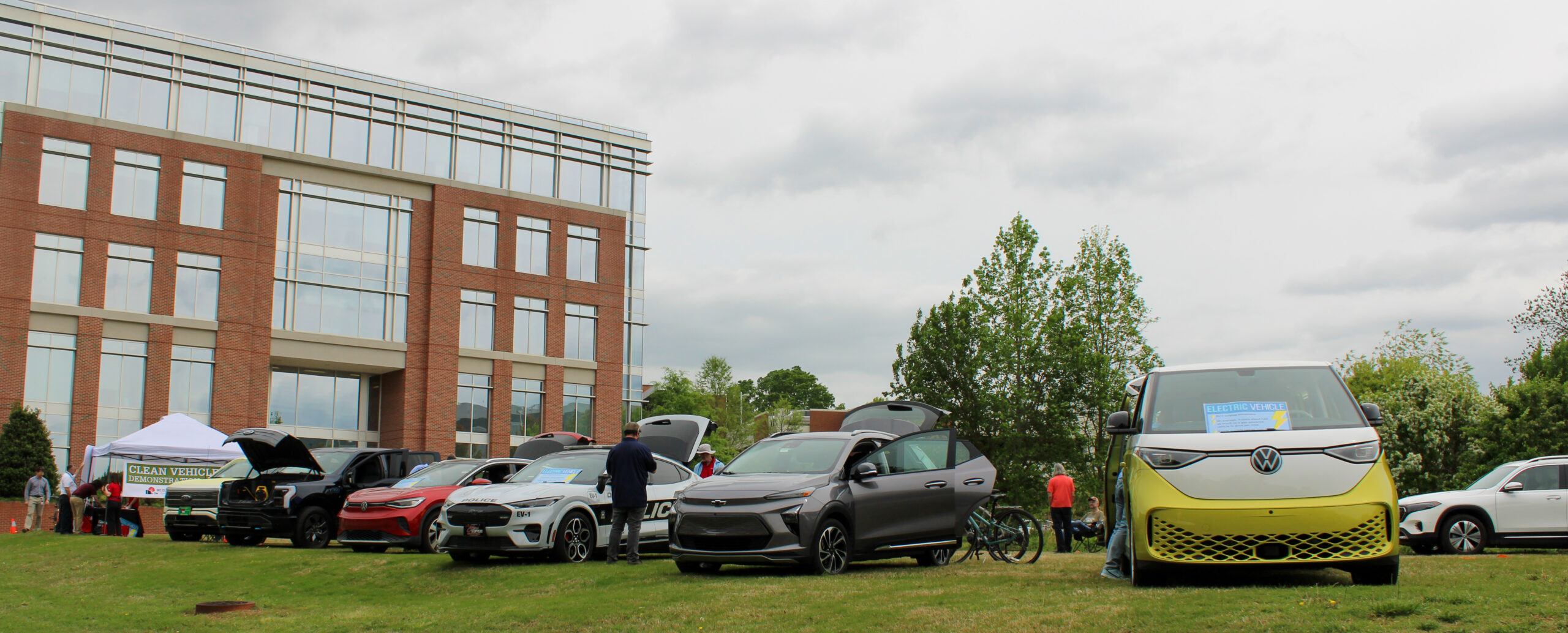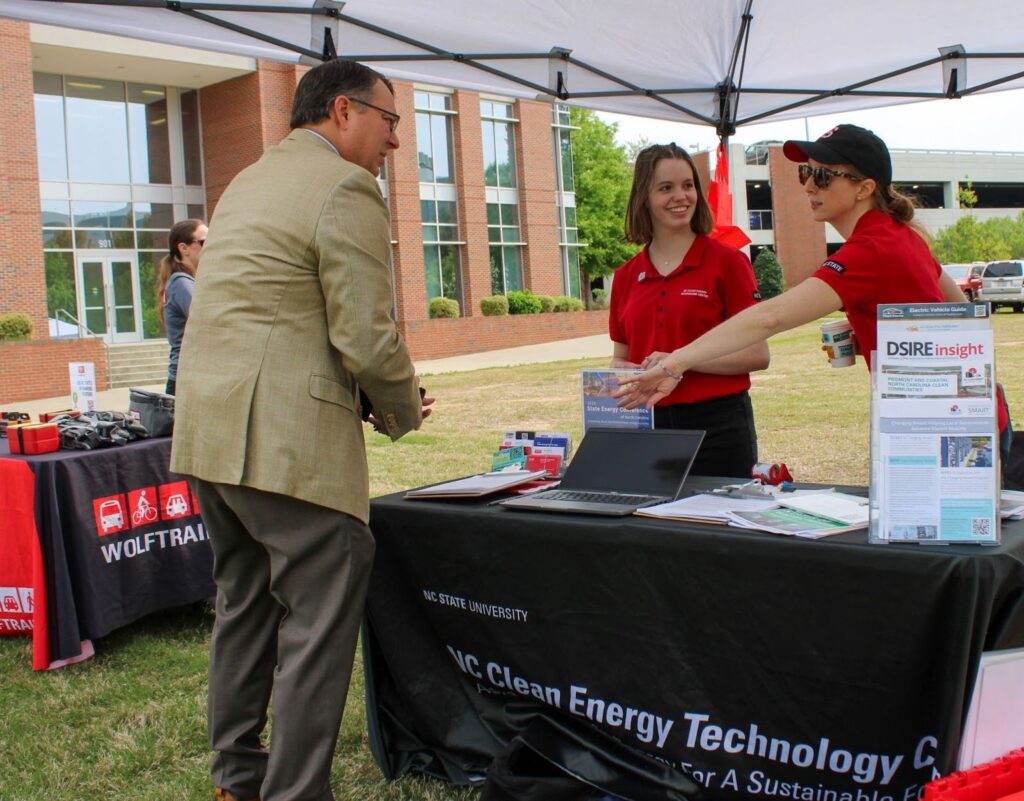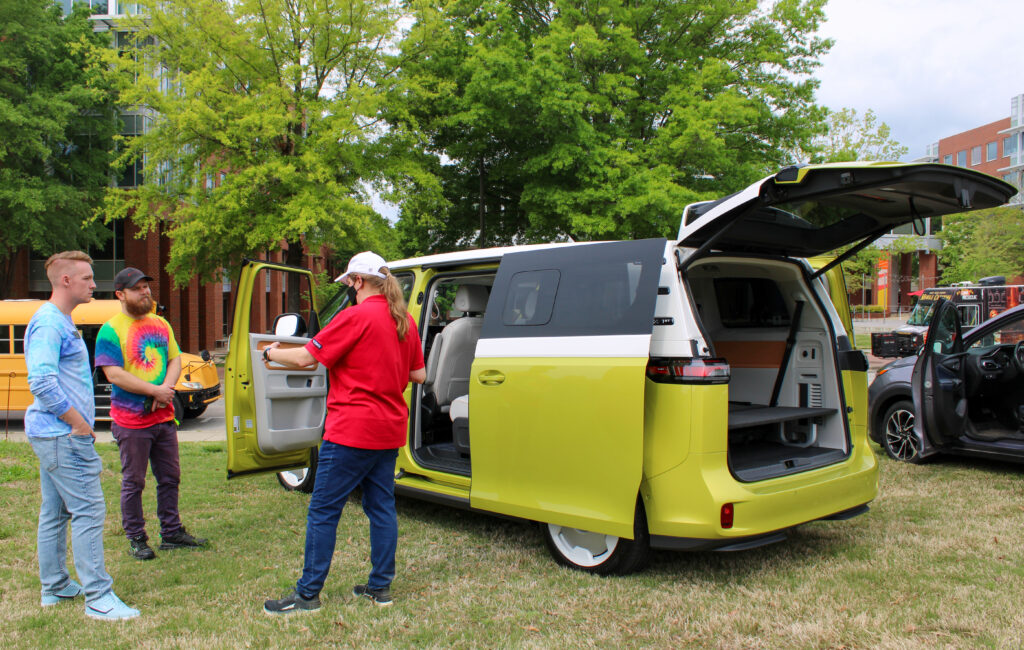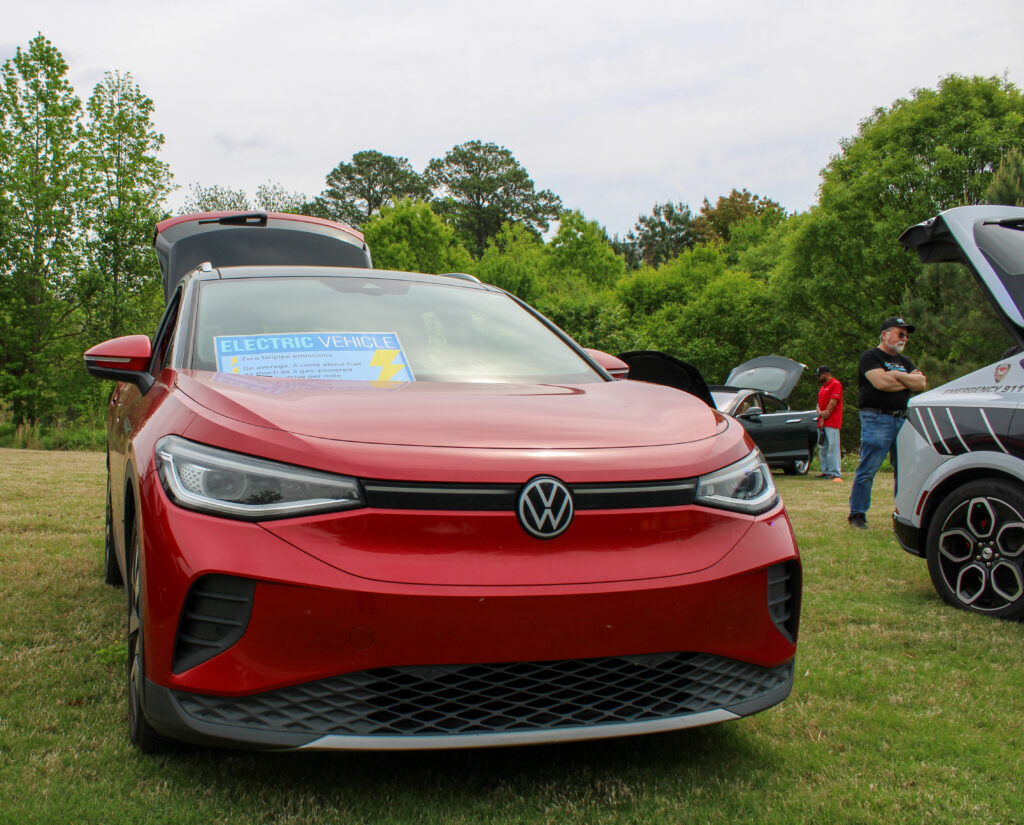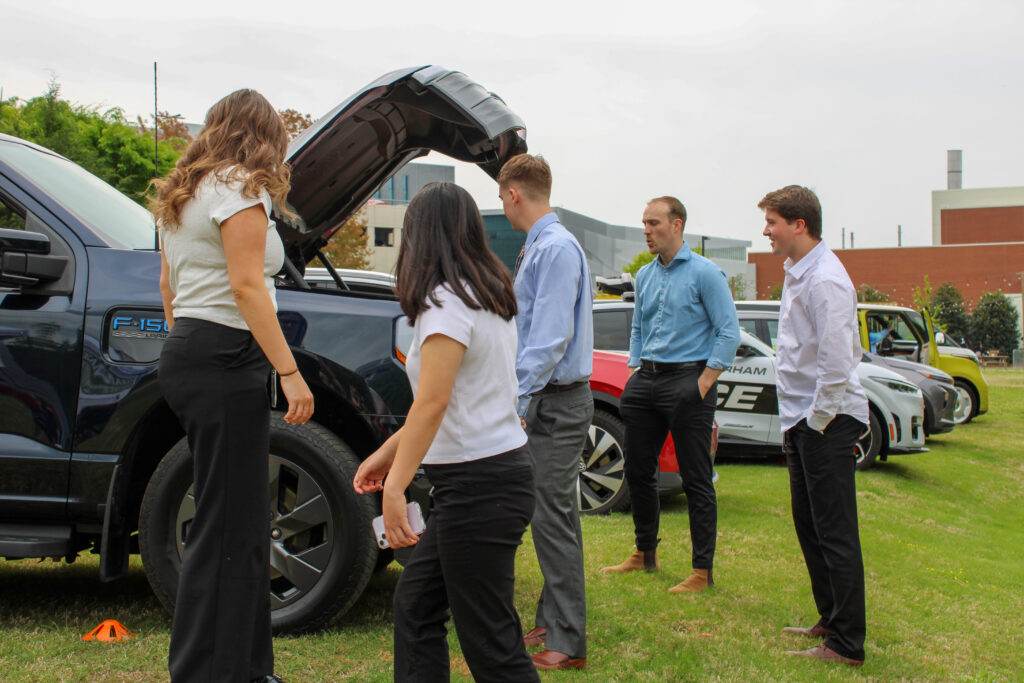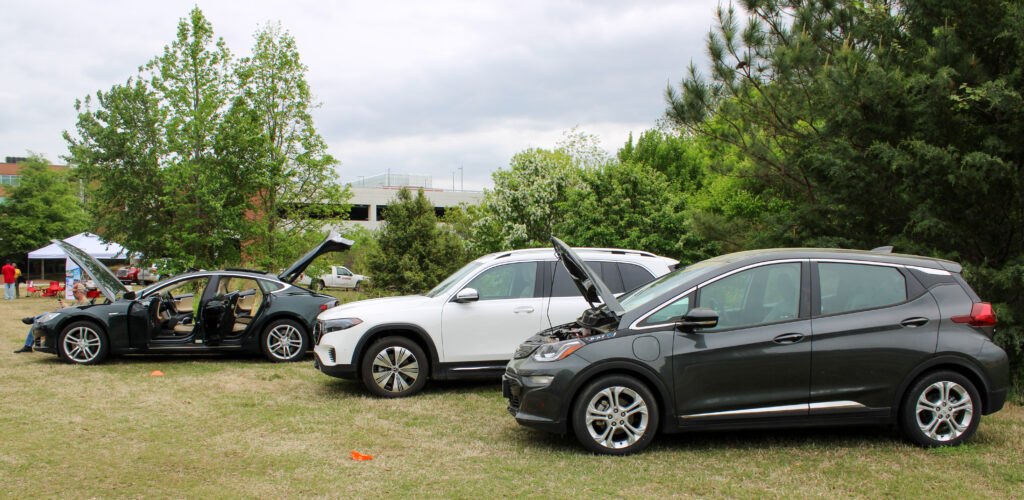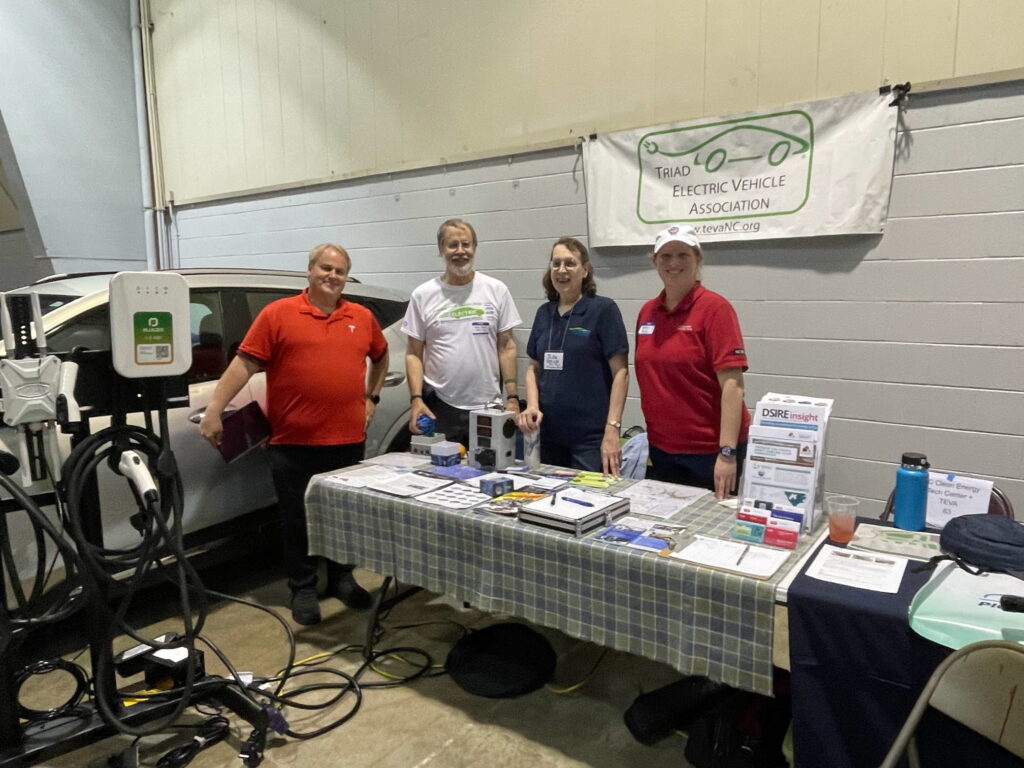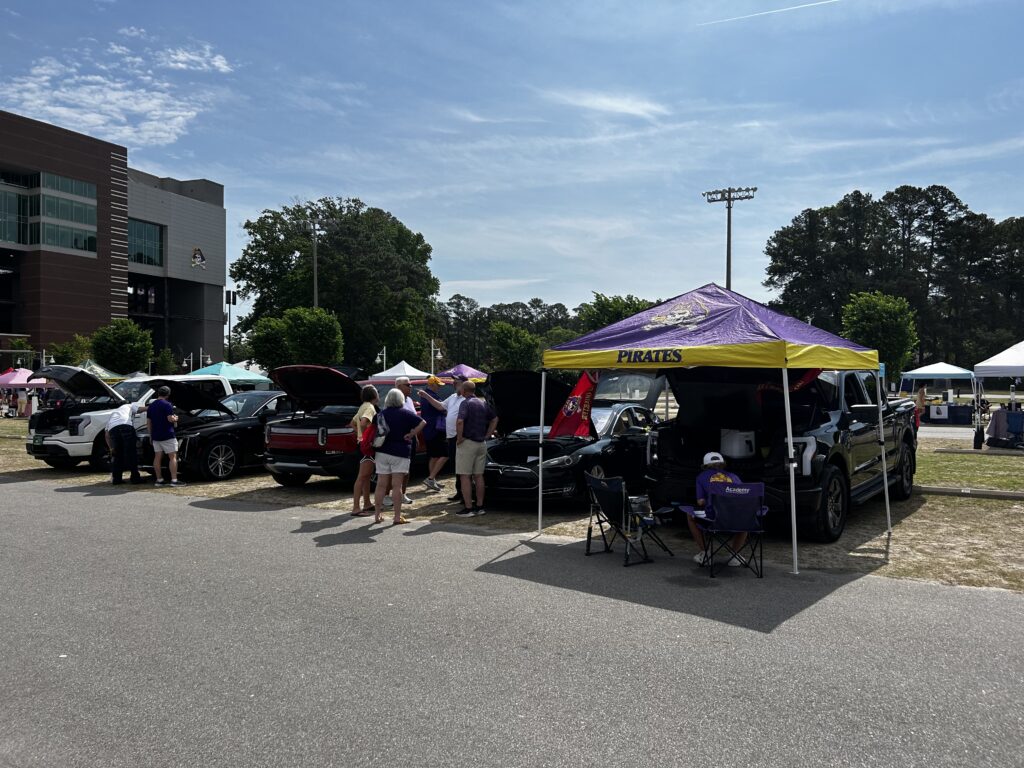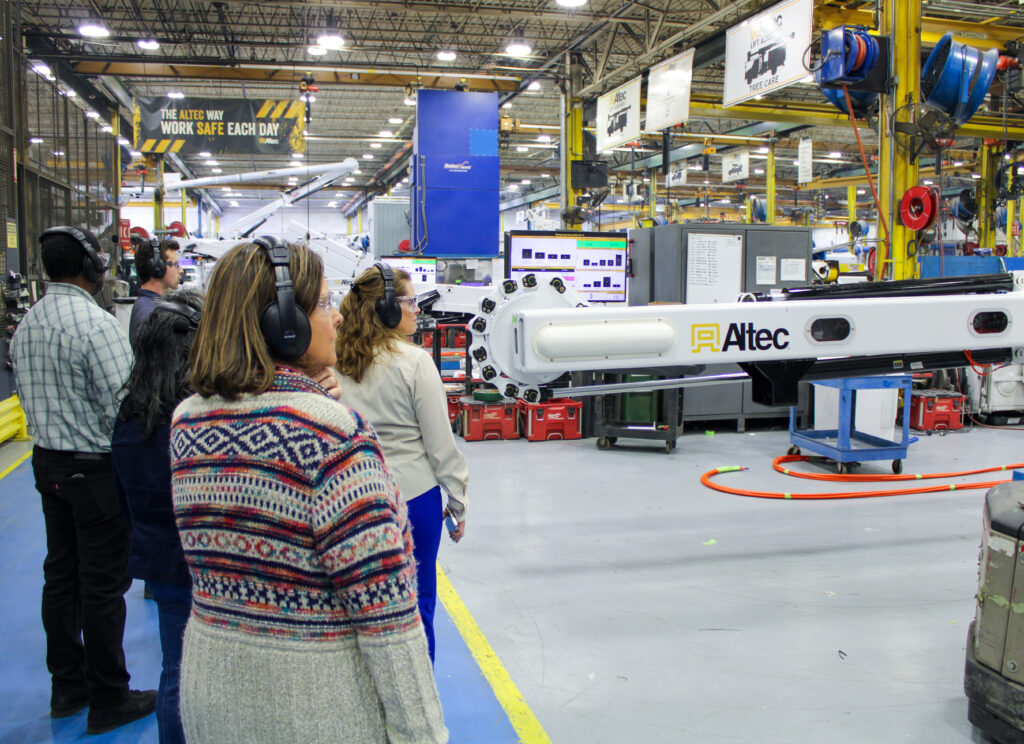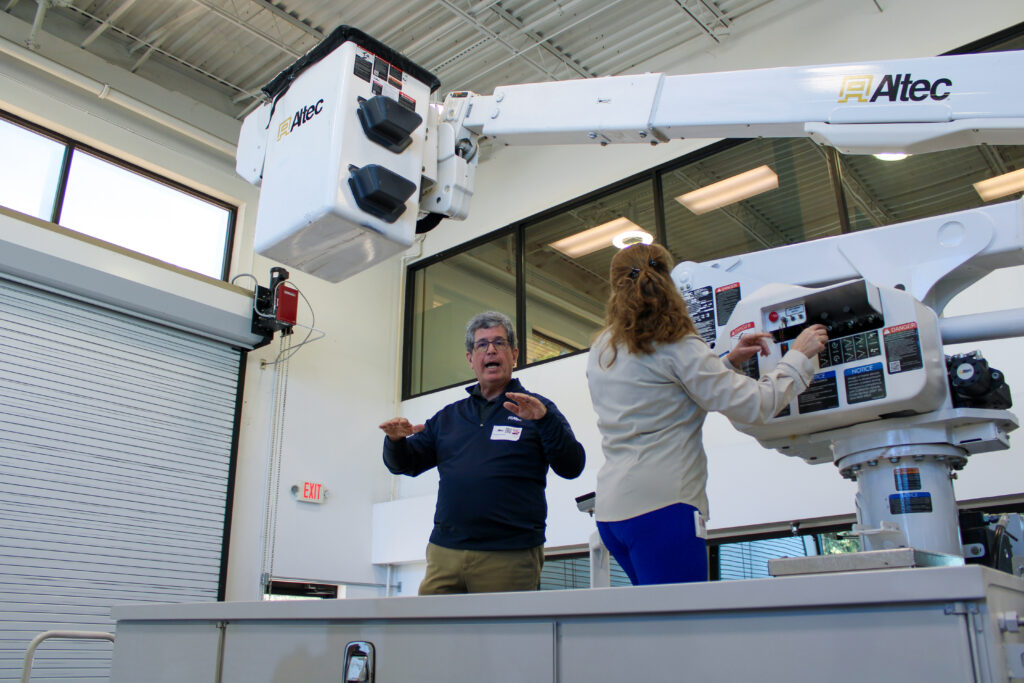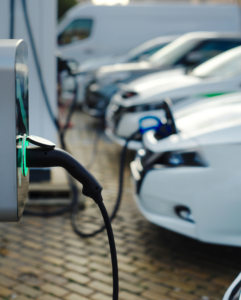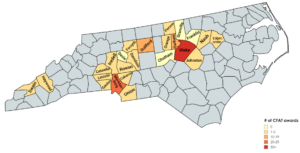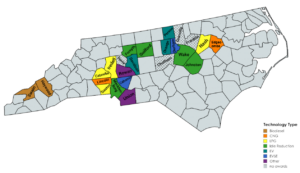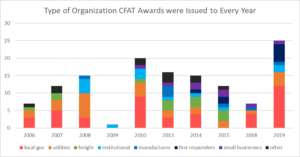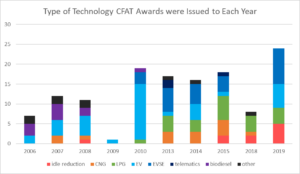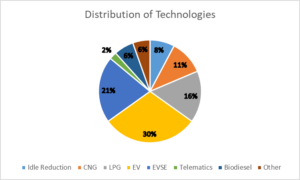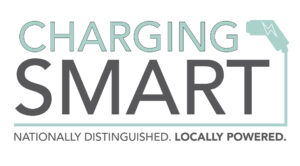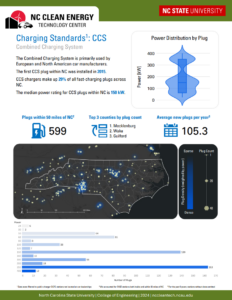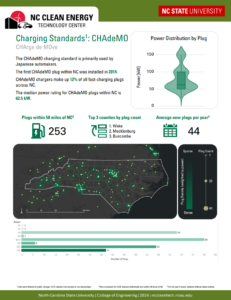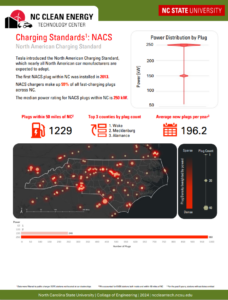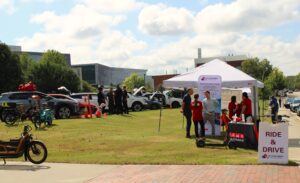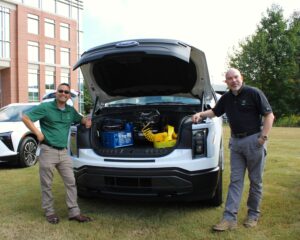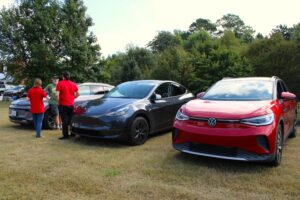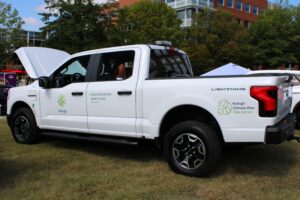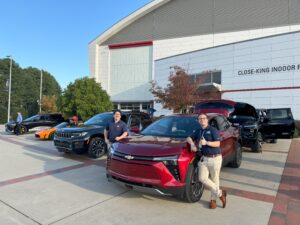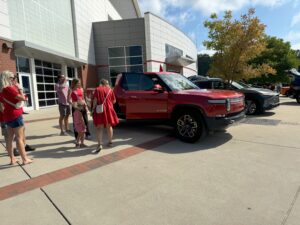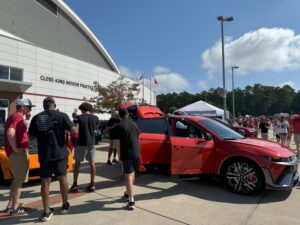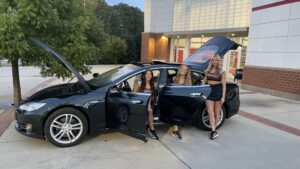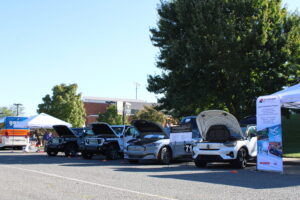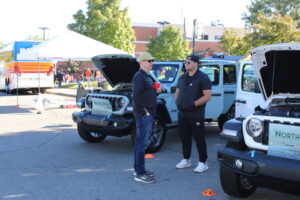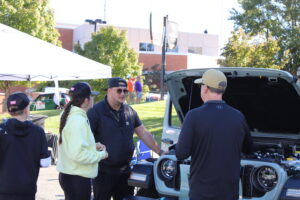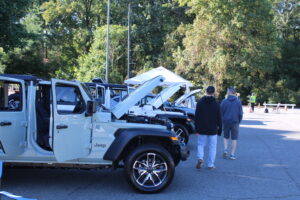By: Dawn Haworth, Public Communications Specialist
Each year, the NC Clean Energy Technology Center’s (NCCETC) Clean Transportation program organizes a Clean Transportation Demonstration Day. This event is catered specifically to government employees, utilities, and military fleet decision-makers who work with alternative fuel vehicles and sustainable fleet technologies. These technologies include idle reduction, off-site charging, mobile charging, and more.
This year’s Demonstration Day took place on May 21, 2025, at the Piedmont Dragway, located in Julian, North Carolina. The following companies and organizations were in attendance:
- Ascendum Machinery
- Brigade Electronics, Inc
- Town of Cary
- Chatham County
- City of Charlotte
- City of Durham
- City of Greensboro
- City of Raleigh
- City of Winston-Salem
- Club Car LLC
- Davidson County
- eBike Central
- Fayat Cleantech Americas
- Forsyth County Office of Environmental Assistance and Protection
- GoTriangle
- Government Finance Officers Association
- Immixt Renewable Fuels
- Kempower
- NC Department of Environmental Quality
- Piedmont Natural Gas
- Subaru of America
- Triangle Clean Cities
- U.S. Energy
Pictured: (Top row, left to right) Heather Brutz, Adam Shearin, John Bonitz. (Bottom row, left to right) Alrik Lunsford, Jesse Duran.
The event kicked off with presentations by Clean Transportation program staff, along with Triangle Clean Cities Director Jesse Duran and Kempower Sales Manager Adam Shearin. Clean Transportation Program Director Heather Brutz gave an overview of NCCETC, followed by remarks from Senior Clean Transportation Specialist Alrik Lunsford, who directs the Piedmont and Coastal NC Clean Communities Coalition. Lunsford recognized Coalition stakeholders and gave more information about the Coalition’s initiatives and upcoming events. Jesse Duran then spoke about the Triangle Clean Cities Coalition, and Adam Shearin shared information about Kempower’s products and services. Clean Transportation Specialist John Bonitz concluded the presentation portion with a Road Course Safety Briefing to ensure attendees were aware of the ride and drive routes and what to do in the event of an emergency.
Pictured: Attendees get ready to test drive a Subaru Solterra (left), and Tesla Model Y (right and bottom).
Attendees were then free to check out the many alternative fuel vehicles on display, and had the opportunity to ride in or drive select vehicles. The ride and drive course route took exhibitors and attendees on the dragstrip to test out the high speeds and other capabilities that alternative fuel vehicles have to offer.
Pictured: eBike Central display.
eBike Central had several electric cargo bikes for carrying packages or people for display and that were available for test rides. These electric bicycles did not travel to the dragstrip, but attendees enjoyed riding them in open parking lot space near the other vehicles on display.
Pictured: Senior Project Manager Shelly Parker ready to network with attendees.
Pictured: Top row: Piedmont Natural Gas display (left), Voltstack Battery Electric Generator (right). Bottom: Propane-fueled Ford E450 and fire truck with APU.
There was an array of medium- and heavy-duty alternative fuel vehicles on display. The City of Durham brought a fire truck with an Auxiliary Power Unit (APU), which powers electrical, heating, and air-conditioning while the vehicle is stationary, reducing idling and emissions. Davidson County Government displayed a 2024 Ford E450, which is fueled by gasoline and propane. Ascendum Machinery also displayed a Voltstack Battery Electric Generator that can provide Level 2 charging or meet other energy needs.
Pictured: Ascendum simulator trailer.
Ascendum’s battery electric generator powered their 30ft simulator trailer that attendees could use to simulate driving their heavy loader equipment. Also on display was a Leeboy eNV55, an electric broom.
Pictured (left to right): 2025 Ravo R5E Street Sweeper, Leeboy eNV55 electric broom.
Pictured: Top: Kempower Tesla Model Y (left), City of Winston-Salem Tesla Model 3 (right). Bottom: Triangle Clean Cities display (left), Piedmont Natural Gas display (right).
Pictured: Brigade 2021 Ford Explorer with 360 video tech display.
Pictured: U.S. Energy’s off-grid Volt Vault DC Fast Charging System, fueled by natural gas.
Pictured: Club Car vehicle ready to be taken on a test drive.
Pictured: City of Durham and Piedmont Natural Gas display vehicles.
NCCETC enjoys hosting this event each year to strengthen relationships with local governments, utilities, and fleet decision-makers. The Clean Transportation program looks forward to reconnecting with these attendees and organizations at the 2025 Sustainable Fleet Technology Conference & Expo, taking place August 25-27, 2025, at the Benton Convention Center in Winston-Salem, NC – the early bird deadline is July 11!

